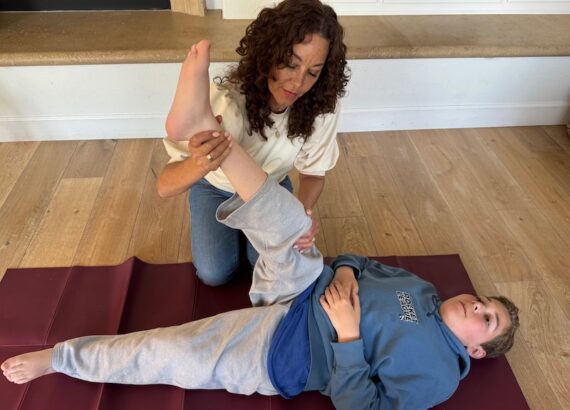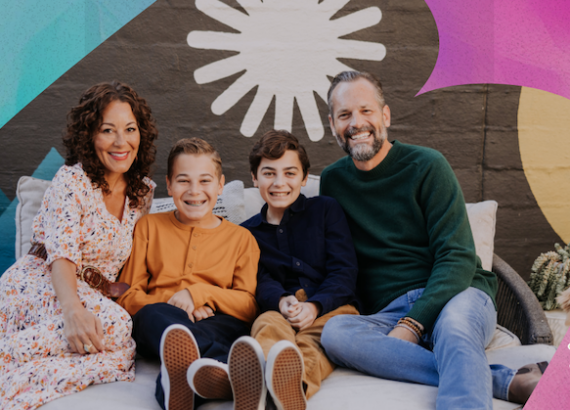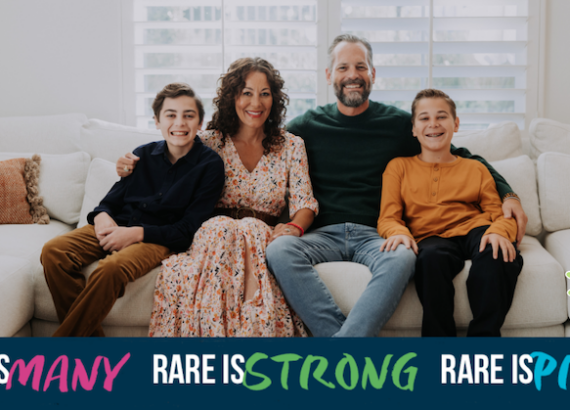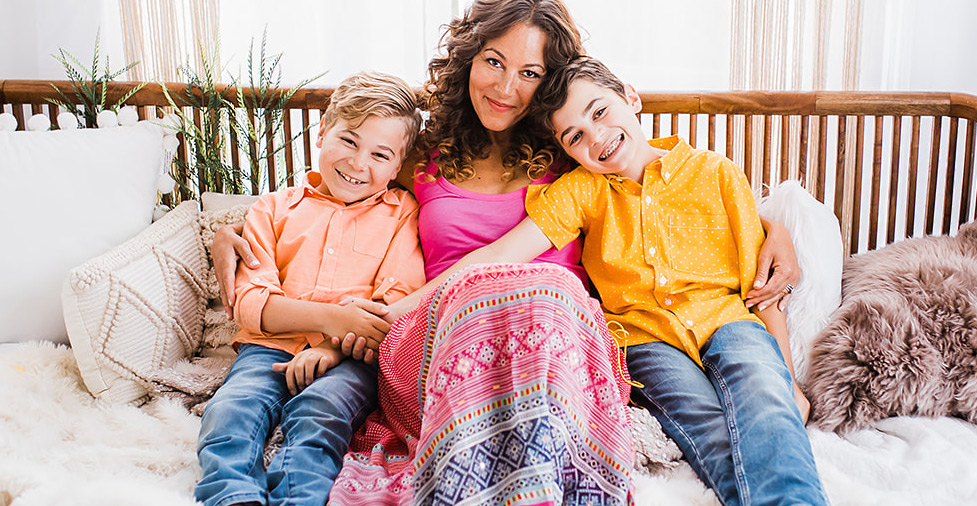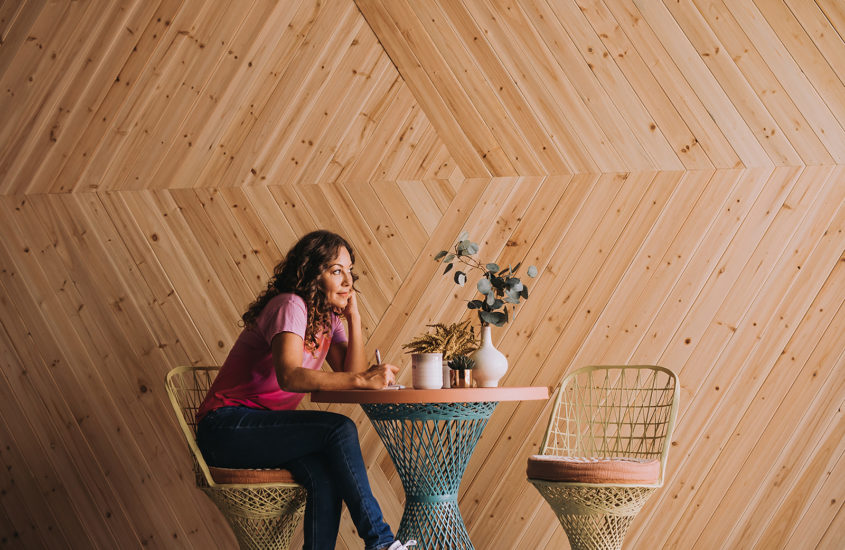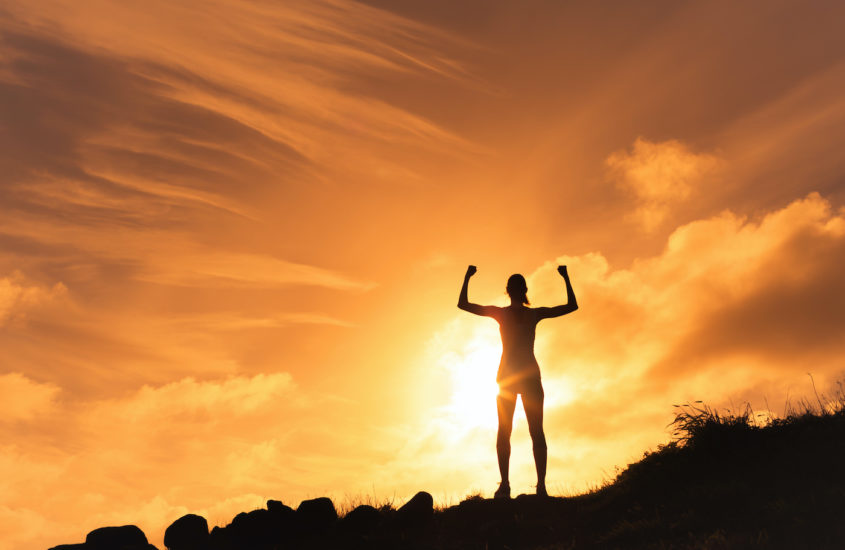EP05 – Lighting the Way with Once Upon A Gene Podcast Host & Rare Mom Effie Parks
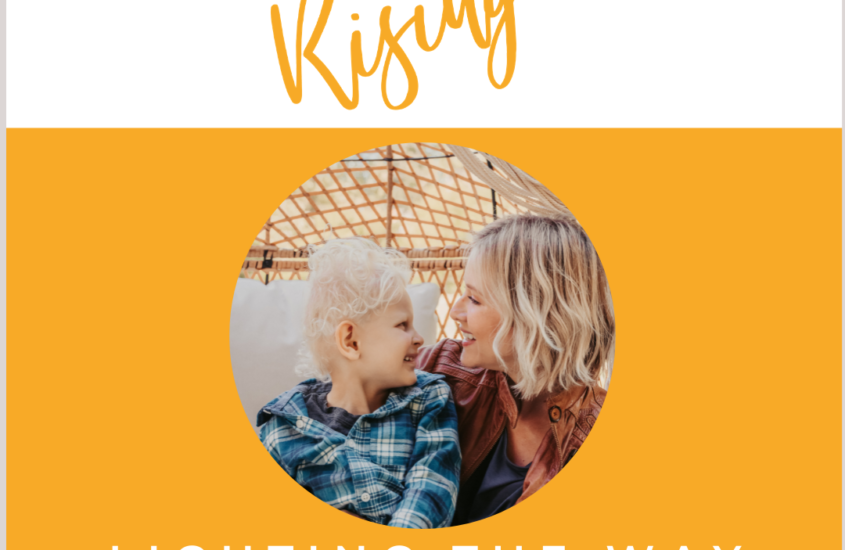
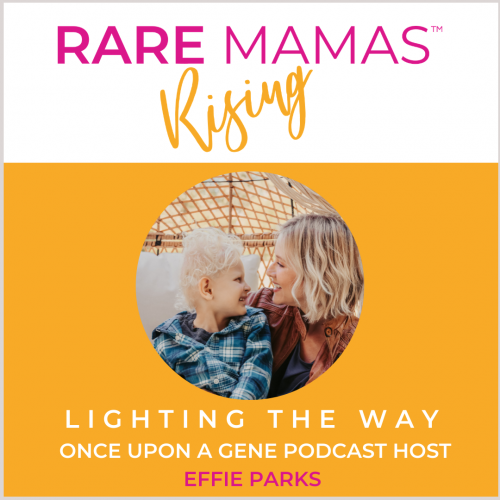
When Effie’s son Ford was born with an extremely rare genetic condition called CTNNB1 syndrome, not only did she dive into the world of advocacy, but she launched the Once Upon a Gene podcast, a podcast that explores the world of raising children with disabilities and rare genetic disorders. Effie also hosts the Once Upon a Gene TV show on the Disorder Channel. In this episode, we discuss the challenges parents face on the rare disease road and Effie offers ideas and tips to light the way.
Episode Highlights
Can you tell us about your son Ford and tell us a bit of your story?
When Ford was born, he had a really low birth weight and feeding issues. After 3 months, our pediatrician said, “I’m worried about Ford; you need to take him to Children’s.” We heard words like failure to thrive, hypotonia, microcephaly, and we left with an NG tube. We got connected with a geneticist. They said it was CTNNB1, and there were 30 kids in the world with it.
How did your experience lead you to create the Once Upon a Gene podcast?
In the beginning, feeling like nobody knew what I was going through and feeling so isolated. I found some comfort in a couple of podcasts, The Two Disabled Dudes being my main one. I was so inspired by what they were doing, and I noticed it was healing me and relaxing me, and it was giving me so much hope. I was so incredibly thankful, and ultimately, I wanted to do the same thing for someone else. I knew it was a piece of my purpose.
What are some of the common challenges you hear people up against?
Self-care is such a big one. It can be confusing, intimidating, and overwhelming. I draw four oxygen tanks and put something in each one that I have to do each day, no matter what. I learned box breathing, and that was life-changing to learn. Check out Rose Reif, a therapist for people who have disabilities and their caregivers. She teaches that self-care is the small, consistent things that you make habits that you do every single day no matter what.
What is another pain point you hear from parents?
Feeling alone, feeling isolated, feeling misunderstood. That’s when people start to look for books, podcasts, blogs, and following advocates to feel less alone. Find what makes you feel warm and gives you energy. Go find your people. We can’t do this alone.
What about Inclusion? What tips do you have to help others include our children?
You have to create boundaries for yourself. It’s a muscle that we have to work. We should come at it with the intention of grace and educating, and just being kind. I’m always trying to get Ford involved. There’s a resource called the Friendship Circle that is all over the country, and I highly recommend it.
What other pain points?
We are talking about money a lot and how expensive our life is. The Disorder Channel and I just did an episode on the financial stuff. There are groups on Facebook in your neighborhood, and there are sites for parents like you who swap equipment or give away extra supplies or old equipment. I highly recommend finding those groups to take a little bit of the burden of paying for some of this stuff off your shoulders.
Any parting words to our listeners, mama to mama?
Accept all of your emotions. They’re valid. Notice them. Work through them and let them go. Keep moving and find hope anywhere you can. Find whatever your purpose can be from this to help someone else. Once you can find a glimmer of hope, don’t let go of it and find out what you can do with it because there is nothing that can stop a rare disease parent.
RESOURCES MENTIONED
CONNECT WITH NIKKI
